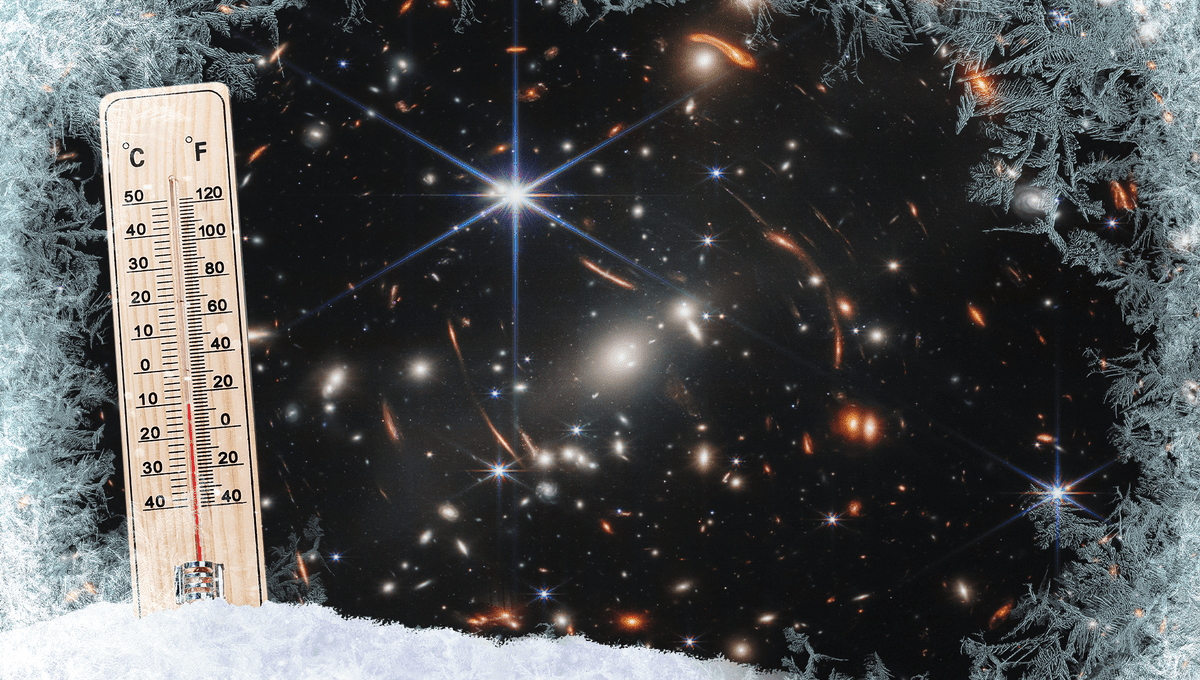
Have you ever wondered what would happen if you were in space without protection? Aside from the obvious lack of oxygen and slowly choking, you will also be subjected to extreme temperatures which might not kill you altogether, but might make your final seconds in the universe very unpleasant.
There is an assumption that space is extremely cold, and it is mostly correct – with some caveats. It very much depends on where you are in outer space, so you wouldn’t simply freeze without protection. There are cases where you might burn, and others where even a spacecraft would melt.
How Cold Is Outer Space Near Earth?
Let’s start very close to home. The International Space Station (ISS) orbits just 400 kilometers (250 miles) above ground – but, without the protection of the atmosphere, experiences temperature extremes unseen on Earth.
At its coldest, thermometers would register around -157 °C (-250 °F), a temperature where even pure propyl alcohol is frozen. That happens when the ISS is passing behind the Earth. When the station is back in the sunlight, the temperature shoots up to 121 °C (250 °F). Similar extremes are seen on the Moon between its dayside and nightside.
Your temperature in interplanetary space will depend on how close you are to the Sun – and you do not have to get too close to get to an incredibly high temperature.
The Corona, the sun’s atmosphere, extends for millions of kilometers and at its hottest has a temperature of millions of degrees. NASA’s Parker Solar Probe gets through the corona’s outer layers. it has no camera pointing at the Sun because, getting so close, the sunlight would be hot enough to melt the spacecraft’s interior.
Taking The Temperature Of The Universe
Temperature variations are seen near any major cosmic objects. Stars, black holes, planets, and more affect the surrounding temperature one experiences. But we can actually measure the temperature of the cosmos at large.
That measurement comes from the Cosmic Microwave Background (CMB), the first light that was free to move through the universe unimpeded.
In the early universe, everything was so hot that this light was constantly ripping electrons from atoms, getting absorbed and then re-emitted in the process. Due to the expansion of the universe, the universe began to cool down until this light was free.
The universe has been expanding and cooling ever since. It has now a temperature of 2.73 Kelvin (-270.4°C or -454.756 °F). Just a few degrees above absolute zero, the lowest temperature there is.
How hot a substance is is essentially how energetic its particles are: with more energy comes more heat. At absolute zero, particles have zero energy, and are immobile.
There are certainly hotter places in the Universe, even in intergalactic space thanks to jets of material accelerated by supermassive black holes, as well as gas being pulled in by gravity.
Surprisingly, there are also colder places than the CMB. The Boomerang Nebula is one of these, and researchers have only recently worked out how it gets to be slightly colder than the rest of the Universe.
From The Space Race To Palm Of Your Hand
Spacesuits are not designed to keep you warm. They are designed to keep astronauts at a comfortable temperature no matter what the external temperature would be. As we have seen, that can fluctuate a lot around Earth.
The development of lightweight insulation was instrumental to guarantee astronaut safety. NASA calls it a “radiant barrier”, which sounds like a Dungeons & Dragons spell. The material is used in buildings, emergency blankets, light fixtures, and even in mobile phone cases.
Source Link: How Cold Is Outer Space?